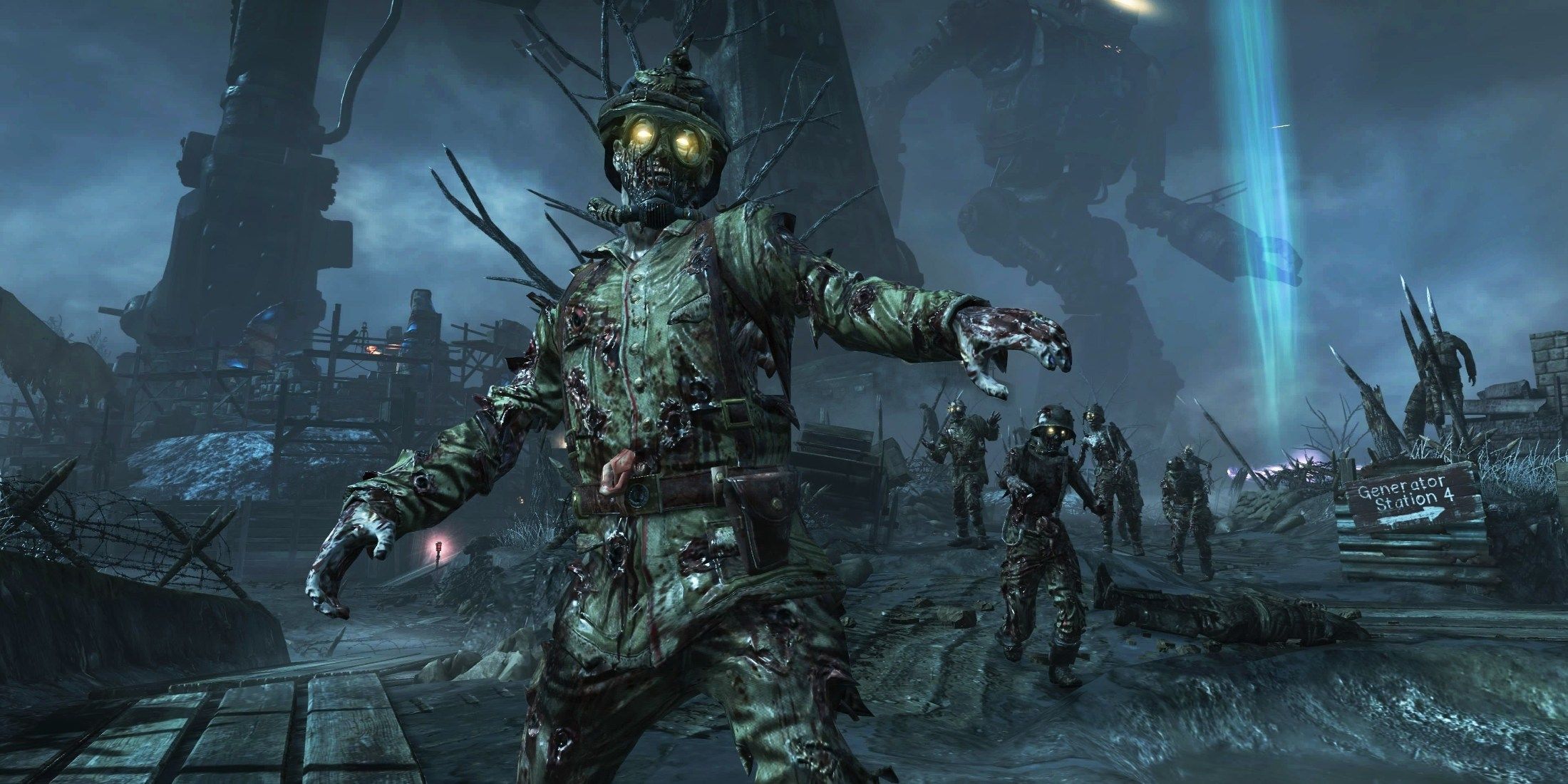Summary
- Companions in games like Fallout 4, Far Cry 5, and Cyberpunk 2077 offer meaningful interactions and evolve based on player choices.
- Squad AI in games like Ghost Recon Wildlands and Red Dead Redemption 2 adds tactical depth and narrative cohesion.
- Games like Dragon’s Dogma 2 and Xenoblade Chronicles X have AI companions that adapt to the world, offering advice and impacting the story.
In most open-world games, companion characters follow the player passively, offering minimal impact aside from a few dialogue options and some handy covering fire. But in rare cases, companion AI transcends scripted support to create the illusion of a sentient partnership that goes beyond just following the player around.
In the best examples, companions are not just secondary cast members, but feel like autonomous agents sharing the world. There are so many great open-world games where companion AI feels remarkably alive, enhancing exploration, combat, and storytelling in lasting and meaningful ways.
8
Fallout 4
Diverse Companions Impacted By Every Choice
Fallout 4 introduces a variety of companions with individual personalities, moral stances, and story arcs that unfold across the open world. From Dogmeat’s unwavering loyalty to Nick Valentine’s detective sensibilities, each offers a unique flavor and reactive dialogue that feels meaningful in the wasteland.
These companions comment on locations and player actions, and can even initiate their own quests. Some may refuse to follow if ideological boundaries are crossed, meaning that attention to dialogue is of the utmost importance. Their presence in both combat and downtime reinforces a sense of ongoing companionship, and the persistent interaction throughout the story adds a sense of connectivity to the narrative.
7
Far Cry 5
Specialized Characters To Fit Any Need
Far Cry 5’s “Guns for Hire” system gives players access to a wide roster of AI-controlled companions, each with unique abilities and personalities. From stealth archer Jess Black to the explosive-wielding Hurk and even animal allies like Boomer and Cheeseburger, companions play distinct and active roles in the story and exploration.
They can save the player from death, engage with enemies alone, and interact with the environment intelligently, making the player feel more connected than ever. Their one-liners and unscripted reactions add moments of levity or tension during exploration, offering a surprising level of depth in the open-world chaos of Hope County.
6
Tom Clancy’s Ghost Recon Wildlands
Squadmates Coordinate Tactically And Respond In Real Time
In Ghost Recon Wildlands, squad AI is essential to both tactical planning and narrative cohesion. The AI teammates respond to commands, coordinate in synchronized actions, and adapt to shifting battlefield conditions without constant micromanagement.
What makes them feel alive is their consistent, reactive behavior, as they banter during travel and execute stealth or aggressive tactics based on player cues during combat. Their effectiveness in prolonged engagements gives the impression of seasoned operatives rather than placeholder NPCs, which makes every team feel like a real squad.
5
Red Dead Redemption 2
Gang Members That Live Fully Reactive Lives
Red Dead Redemption 2 features a dynamic cast of companions who exist persistently within the Van der Linde gang. These characters are not always in combat, but their daily routines, evolving relationships, and contextual reactions create a strong illusion of autonomous lives.
They eat, argue, socialize, and travel, reacting to story developments and player actions alike. Whether accompanying Arthur on missions or simply chatting at campfires, their personalities unfold gradually, reinforcing emotional investment.
4
Dying Light 2: Stay Human
Allies Shift With Decisions And City Impacts
Dying Light 2 features companions whose allegiances, personalities, and presence in the world shift in response to player choices. Characters like Lawan and Hakon evolve across branching narratives, and their involvement can drastically alter events and even city infrastructure.
Though they aren’t always present during exploration, their participation during key missions reflects context-sensitive AI and dramatic tension. They navigate urban obstacles convincingly and engage in combat with purpose, not merely reacting, but making decisions that feel consequential, which strengthens the illusion of agency in the crumbling world.
3
Cyberpunk 2077
Complex Companions, Each With Their Own Purpose
After major updates, Cyberpunk 2077 offers companion characters who act with considerable autonomy and narrative complexity. Plenty of characters provide meaningful interactions both in and out of missions, evolving based on choices and loyalty.
During select missions and sequences, their AI adapts fluidly, taking cover or navigating the fights convincingly in both strategic and aggressive ways. Beyond combat, they live independent lives in the open world. They contact the player with new information or emotional responses, allowing them to exist outside the player’s narrow circle.
2
Xenoblade Chronicles X
Story-Related Changes For Every Character
Xenoblade Chronicles X presents a squad system where companions evolve meaningfully through affinity, quest involvement, and narrative branching. The characters offer far more than surface-level banter, growing in complexity and presence across Mira’s vast alien world.
Companions learn from battles and respond to world events, resulting in unique quests that are directly tied to their progression. Their interrelationships affect how missions unfold, and their philosophies about humanity’s survival impact major narrative beats in unexpected ways. With their persistent presence and adaptive roles in an ever-expanding frontier, the game achieves a rare blend of mechanical depth and narrative cohesion held together by the companion AI.
1
Dragon’s Dogma 2
Adaptation Beyond Basic Guides
Dragon’s Dogma 2 refines and deepens the original game’s Pawn system, creating AI companions that feel organically integrated into both the world and the player’s journey. Pawns navigate the open world with initiative while responding to enemy types and tactics they’ve encountered through prior experience.
What sets the system apart is its sense of memory and shared knowledge. Pawns recruited from other players retain information about quests, geography, and boss strategies, and they actively offer advice or even lead the player toward hidden objectives. Their unique personalization and emergent behavior make them feel like independent participants in the story rather than scripted followers, taking on larger roles in the narrative than simple placeholders.













